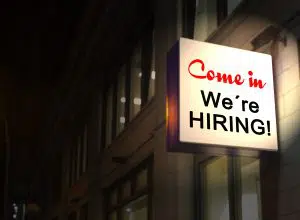As I planned, researched, and wrote Deep Cover Jack, it quickly became clear that we’d be dealing with some pretty heavy topics in this book. That’s often the case when writing thrillers, but this newest Hunt for Jack Reacher thriller required research on human trafficking.

In Part 1 of this blog, I told you some general information about the definition of human trafficking, how it happens, and how smugglers bypass border control. We talked mostly about women who are physically forced, through means like kidnapping, and often violently and under life-threatening conditions, into the sex industry.
But there’s another side to the crime. A trickier side. Groups of victims, countless in number, who are forced into the human trafficking industry by way of being duped. We’re talking now about people who weren’t snatched or kidnapped, who weren’t initially moved by means of physical force at all.
My research indicates there five main categories that these victims who move willingly fall into.
1. DRUG ADDICTIONS
Human traffickers prey on drug addictions, often encouraging addictions as a means of increasing dependency. They can then coerce the victim to stay with them as they travel to a location where the addict/victim will fall into the hands of someone else with bad intentions.
“Many men and women turn to prostitution in order to support drug dependencies (DARA). This is used as leverage by many traffickers as a way to obtain workers.” – www.allwewantislove.org/blog/human-trafficking-and-drug-abuse
2. FALSE JOB ADVERTISEMENTS
Human trafficking rings can be very well organized. Victims intrigued by a job offer that seems too good to be true follow up on it and find that it was, in fact, a ploy, but it’s too late — they have already moved willingly, only to be forced into the worst possible case scenario.
“These fake offers usually entice people by requiring little to no previous work experience or knowledge of a foreign language but offer housing and visa or travel procurement and they pay extremely well.”
–http://www.eliberare.com/en/2015/05/4-methods-traffickers-use-to-recruit-their-victims-keep-your-eyes-wide-open/
3. DESPERATE FAMILY MEMBERS MAKE A SALE
It’s too sad to believe, but it happens. Sometimes a family member can get so desperate for money (often to feed a drug addiction…) that they will sell a young girl into the sex trade.
4. REFUGEES
People wishing to flee a country have several options. There are underground opportunities, where refugees can pay a fee to be smuggled into another country with a group of people. The situation can quickly turn into a debt-filled, sex slave scenario.
“Migrants who travel to the EU are vulnerable to labour or sexual exploitation as they need to repay their debt to smugglers.”
http://www.interpol.int/News-and-media/News/2016/N2016-062
5. TAKING ADVANTAGE OF WOMEN IN HARD TIMES
Many human traffickers start out by posing as boyfriends, loving husbands, or simply caring friends. These are the manipulators behind all four of the following specific examples of human trafficking survivors:
- Anna had a lifelong dream of becoming a nurse. Her female cousin convinced her to study with her in Greece. It was a setup. Nursing school didn’t happen.
- Mariana needed to make extra money to help the family make ends meet. Her boyfriend told her he had a job for her. Little did Mariana know, the job would be nothing like she had imagined.
- Millie was “rescued” by a new “boyfriend” who offered to whisk her away from her problems and start a new life with her in Greece. Full of hope and naïveté, she went along. He made money off her and ditched her.
- Fleeing an abusive situation, Deborah confided in a friend who told her about an agency that helped organize trips for people to leave the country. For a small fee, they would give her a visa to Europe. But once in Turkey they confiscated her passport and told her she owed money. She was forced into the sex trade to pay back alleged debts.
In all four of these specific cases, the women ended up becoming victims of the human trafficking industry.
Make no mistake: human trafficking is an organized crime. It’s domestic, it’s international, and often hides in the shadows.
To learn more about human trafficking and about how to get involved in helping victims, CLICK HERE.







Comments are closed.